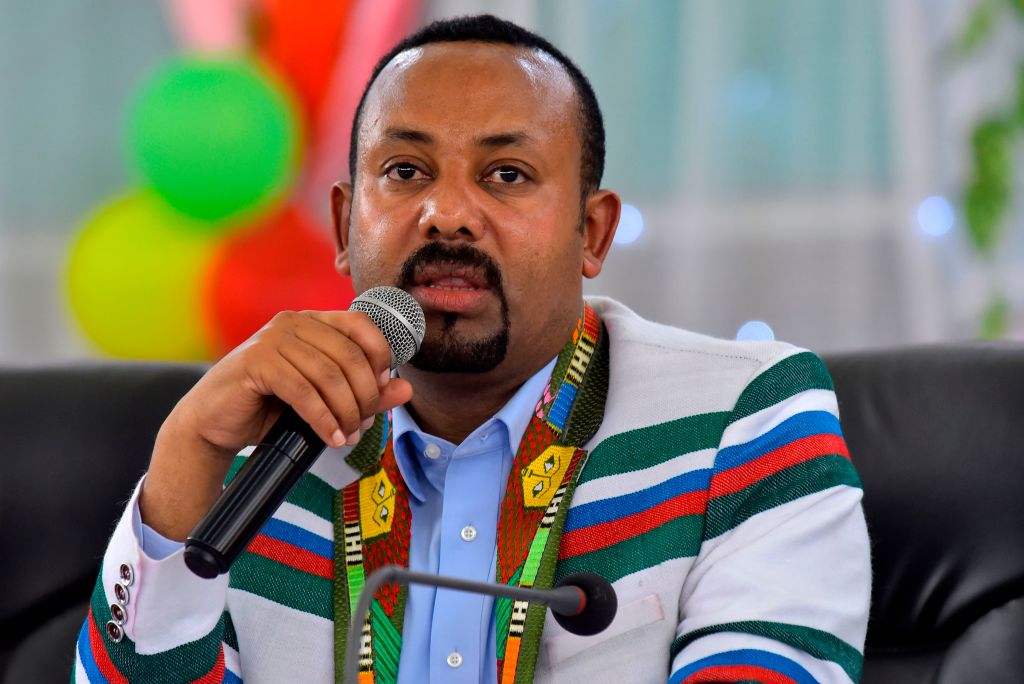One man can induce rippling change in a system. One man can stop illegal detention, arrests, and govern the impulse to clamp down on free speech and citizens’ rights. One man can rebuild relationships and cause harmony to exist among disparate peoples. That man is the president; If only he is willing.
In Ethiopia, Abiy Ahmed, the young, charismatic prime minister, has effectuated expansive reforms in the country. He brooks opposition and harbours no political prisoner.
In fact, one of his first assignments after becoming prime minister was to order the release of political prisoners. He appointed women to about 60 percent of cabinet positions. And after decades of conflict between Ethiopia and Eritrea, he made peace with the neighbouring country.
The Ethiopia-Eritrea hostility had seemed intractable and defied international interventions, until Abiy’s rapprochement. It is for this lofty action, including his peace initiatives in his country, that he was awarded the Nobel Peace Prize.
One man can change the world.
But what can 78-year-old President Muhammadu Buhari glean from the leadership engineering of 43-year-old Abiy?
Buhari congratulated the Ethiopian prime minister on the global recognition. But has the president taken his time to study Abiy’s leadership style? Does he see his failures in the young leader?
‘’President Muhammadu Buhari congratulates Ethiopian Prime Minister Abiy Ahmed, who was declared winner of 2019 Nobel Peace Prize on Friday in Oslo, Norway, saying it portends a good sign for the peace processes within countries, and across borders on African continent,’’ a statement issued by Femi Adesina, presidential spokesman, read.
‘’The President reiterates his belief that African development is strongly tied to peaceful co-existence, and deliberate efforts by governments and people to sustain harmony within and between countries, urging more concerted and collective partnership on peace in the continent. President Buhari prays that the global recognition will spur more interest on issues of peace in Africa, and drive home the immeasurable benefits.’’
I read the president’s statement and was stupefied by the hypocrisy it emits. In four and a half years, what has President Buhari done to foster unity among Nigerians? Nigerians have become perilously divided along ethnic and religious contours.
What has Buhari done to engender peaceful co-existence in the country? What has he done to protect citizens’ rights? Currently, he is holding political prisoners, and he disobeys court orders flagrantly.
I have often wondered if the president is mindful of the sort legacy he will leave behind. Does he want to be remembered as another General Abacha? A dictator, violator of citizens’ rights and an oppressor? Is that how he wants to be remembered? Or does the president not think himself worthy of the Nobel Peace Prize?
As matter of fact, Buhari has confirmed every stereotype about himself. Before he became president, it was speculated he would become highhanded when he gets power despite is posturing as a ‘’reformed democrat’’. Truly, he has confirmed this fear.
At the constitutional term limits summit in Niamey, where I was a participant, former President Goodluck Jonathan made a comment that reverberated with me. He said African leaders must look beyond ephemeral power; that one day they will leave office, and what happens afterwards?
If Buhari is attuned to present-day realities, his legacy should matter to him. In three and a half years, he will leave office; his human rights records will certainly count against him. And those goading him on, on this path of repression will not be there to face the opprobrium.
As I said in a previous article, history is unkind to ‘’strong men’’. If the strong man in Aso Villa cares; he should glean some lessons from the ashes of other strong men long gone.
@FredrickNwabufo







